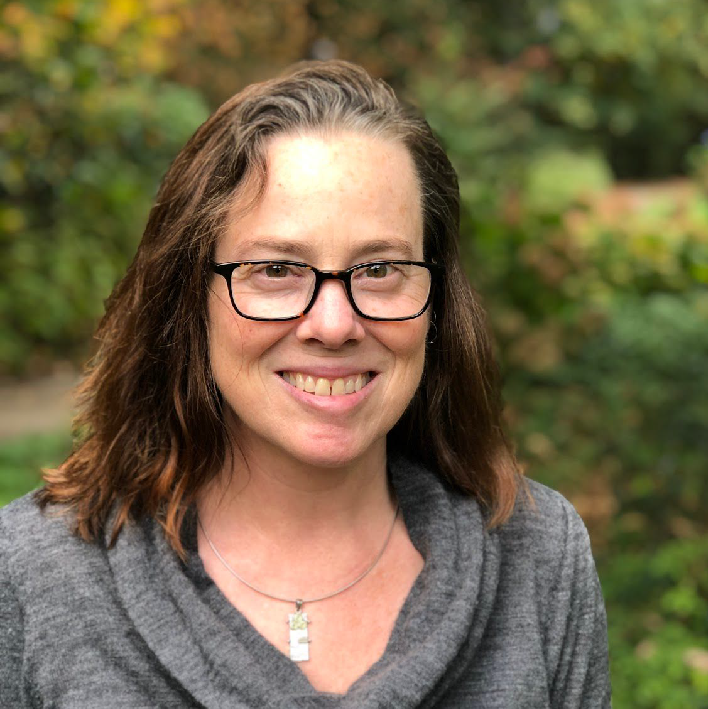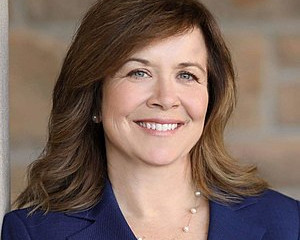Q&A: The Role of L&C Confidential Advocates
Open gallery

Lewis & Clark’s confidential advocates (CAs)—formerly known as sexual assault response advocates (SARAs)—are trained to respond to and support survivors of sexual and interpersonal violence. Confidential advocates offer assistance, support, information, and follow up regarding any form of sexual and interpersonal violence as outlined in the Lewis & Clark College Sexual Misconduct Policy.
Any Lewis & Clark community member may speak with a CA, whether they are a survivor, a friend of a survivor, a concerned student, or a faculty or staff member. All interactions with the CA are confidential.
Melissa Osmond, associate director for health promotion, coordinates the advocacy program and has served as a confidential advocate since 2005. She has a master’s degree in public health with a focus on international and women’s health. Melissa serves on several state and local committees that address gender-based violence prevention and response.
In the following Q&A, Melissa explains the roles and responsibilities of confidential advocates.
Why were sexual assault response advocates (SARAs) renamed confidential advocates? Does this new title change the role of the advocates?
SARAs were well established in the institution’s lexicon, even before I arrived at L&C in 2004. So, why change something that’s so well known? The short answer is because the name has not reflected the whole of what we do in a very long time. We respond to and support survivors of all forms of sexual and interpersonal violence. That includes sexual harassment, intimate partner violence, and stalking, not just sexual assault. We also wanted to emphasize the confidential nature of our role on campus, in that we employ a similar level of confidentiality as mental health and medical providers, clergy, and attorneys. The new title better defines our role as advocates, rather than changes it.
Why are confidential advocates not required to report incidents to the Title IX coordinator?
Lewis & Clark deemed us a confidential resource at the inception of advocates on campus in the ’90s, and in 2015, Oregon passed a law granting confidentiality and privilege to community and campus advocates, the first of its kind in the U.S. A few other states have similar laws that cover advocates working in community crisis organizations, but Oregon was the first to extend the privilege to campus-based advocates. To qualify, an advocate has to complete a minimum of 40 hours of training (CAs complete around 50) and work or volunteer for a college/university or community organization. Certain staff (medical and mental health providers, clergy, etc.) at higher-ed institutions have always been exempt from reporting to the Title IX team, and now advocates are a part of that group.
Please explain the rights of survivors of sexual or interpersonal violence. Do students and employees have the same rights?
All survivors have the rights listed below, whether they are a student or employee. The only potential difference would be procedures in a formal complaint process.
- Survivors have the right to talk to anyone about their experience, and they have the right to refuse to talk to anyone, including police or Lewis & Clark officials.
- Survivors have a right to receive a medical forensic examination at a hospital, whether or not the survivor reports to law enforcement, which helps keep options open for reporting in the future. They also have access to a free wellness exam, including emergency contraception and sexually transmitted infection prophylaxis if indicated, within seven days of the assault, from some off-campus medical providers.
- If a survivor wants to make an official complaint and start a criminal or campus conduct process, they can report to law enforcement, Lewis & Clark officials, or both. If they don’t want to start a formal process, they have the right to request reasonable arrangements to minimize the impact of sexual and interpersonal violence on their education.
- Survivors have the right to have someone with them (such as an advocate) when talking to officials (law enforcement, campus employees, etc.), and they have the right to stop participating in any formal process.
- Survivors can change their mind at any time.
What resources does Campus Safety offer when contacted by a survivor, and is Campus Safety obligated to report incidents?
Campus Safety offers a wide range of resources, such as addressing the immediate safety of the survivor, issuing trespass notices if the person who harmed the survivor is still around, contacting law enforcement (if the survivor wishes), escorting the survivor to a safe place, connecting the survivor with advocacy services, and more.
By law, Campus Safety is required to report certain crimes that occur on campus, including sexual and interpersonal violence. These incidents are de-identified statistics only found in the Daily Crime Log and the annual Crime Awareness, Security, and Fire Safety Report. They share more detailed reports with the Title IX team and other college officials to make sure survivors are aware of their options for reporting and support, and to track potential patterns of sexual and interpersonal violence on campus. It is important to note that a report (or notification) to Campus Safety, Title IX, or another nonconfidential campus official is not automatically a formal process. The survivor has the right to choose what they want to do next, if anything.
What resources are available to help a friend on campus who has survived sexual or interpersonal violence?
The same resources that are available to survivors. Friends can confidentially access CAs and the offices of Counseling Service, Ombuds, and Spiritual Life. Also, our office collaborates with the Feminist Student Union each year to offer Sexual Assault Peer Advocacy (SAPA) training for students on campus. This training is usually 3–5 hours of basic skills on how to respond when someone discloses an experience with sexual and interpersonal violence, including how to be supportive, make appropriate referrals (if necessary and wanted), and consult confidentially with CAs when needed. I want to emphasize that SAPAs are not CAs and receive only 3–5 hours of training as opposed to the 50 hours CAs receive. Additionally, while SAPAs protect the privacy of survivors they meet with, they are not confidential by law. That being said, they are a good resource for survivors who prefer to talk with a peer.
What is being done at Lewis & Clark to prevent sexual and interpersonal violence?
We’ve had programs in place for incoming students for many years now (online educational courses, NSO programming, and sexual health and consent sessions in the Pioneer Success Institute). There are also trainings, annual events, and awareness campaigns sponsored by various student organizations and academic departments. What was missing was a more strategic primary prevention program, including bystander intervention. This is now being addressed by the grant we received from the U.S. Department of Justice’s Office on Violence Against Women (OVW) in the fall of 2018. We are in the process of implementing ongoing prevention activities, including follow-up modules to the online courses, conversations with peer facilitators on consent and healthy relationships, and trainings on the dynamics of violence and bystander intervention for students, faculty, and staff.
What specific steps should staff and faculty take to create a campus culture of consent and active justice?
Attend the Dynamics of Violence and Lead the Change Bystander Intervention Trainings offered for staff and faculty! Be open to discussing not only the negative aspects of violence, but promoting healthy relationships and sexuality. Actively practice/model consent in everyday life. For example, ask permission to sit next to someone at Maggie’s, or ask a student that is meeting with you in your office if they prefer the door open or closed.
And above all, believe, validate, and support survivors.
Is there anything else you’d like to add?
Yes, speaking to survivors: no matter who you are, where you are, what you do, or what you have done in the past, gender-based violence is never your fault.
And for any staff or faculty who are interested in serving as a CA, please contact me at mosmond@lclark.edu. For more information and a full list of on- and off-campus resources (both confidential and nonconfidential), visit www.lclark.edu/healthy-relationships.
email source@lclark.edu

